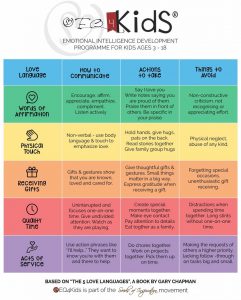
Child care changes with each milestone your child reaches. For better or worse, you as the parent must adapt your techniques with each phase!
Healthy Family Routines:
- Provide adequate family time, playtime and outdoor time. It is important that your child feels not only safe and provided for, but loved, accepted and liked! Playtime reinforces this and strengthens the parent-child connection.
- Listen when your child speaks. Even if it’s something that seems trivial to you, it might be a big deal to your child! This strengthens your child’s connection with you, confidence and language skills.
- Maintain healthy limits (screen time, bedtime, etc.). Limit screen time in the first two years of life to interactive video only (meaning that communicating with friends and relatives using screens is OK).
- If you want your children to be readers, include reading time in your daily routine. You will need to set that example if you want them to maintain this habit as they grow.
- According to the work of Dr. Gary Chapman, everyone prefers to give and be shown love in different ways, which he calls “love languages.” He divided these preferences into five categories: Words of Affirmation, Physical Touch, Receiving Gifts, Quality Time and Acts of Service. Identifying your preferred love languages and those of your loved ones can help you all grow closer together. Cater to your child’s “love language” a little every day. Even on busy days, take a minute to connect. You can build this into your daily routines (e.g., first thing in the morning, car rides, meal prep/cleaning, bedtime). Chapman also wrote a book that applies his work to children, and you can find quizzes on his website as well.
 Mealtime Routines:
Mealtime Routines:
- Having meals together helps maintain the quality of your food and family connectedness, which are protective of both physical and mental health.
- Consider having a “no electronics during mealtime” family norm.
- In fact, studies have shown that smart phones shouldn’t be given to kids before high school. Check out this very interesting video addressing the topic here.
Brain Health:
- Maintain a healthy diet with adequate fiber intake and minimal sugar and processed foods—avoid any brand of “protein shakes.”
- Supplement with vitamin D and fish oil daily.
- Protect gut health (see below).
Nutrition, Gut Health, Minimizing Allergy and Food Sensitivity Risk:
- Protect the gut flora. Supplement with probiotics and possibly prebiotics.
- Avoid excessive antibiotics. If they are needed, take a quality probiotic (like FloraBoost or ProbioMax, which can be purchased through our office) while you’re taking the antibiotics. Separate the probiotic from the medication by at least 2 hours so the “good” bacteria is not destroyed. Continue the probiotic 2 to 4 weeks after the medication is finished.
- Limit potentially gut-inflammatory foods in the diet (e.g., wheat, dairy).
- Limit sugar, processed foods and vegetable oils. High-quality olive or coconut oil is fine.
- Ask yourself this question: Is this “food” or is this “stuff?” “Food” comes from farms; “stuff” comes from factories. “Food” was designed by our Maker, for our benefit; “stuff” was designed by companies, for their own benefit.
- Rotate foods. Try not to have any one food item as a “daily staple” of your diet. Rotating foods can help prevent over-exposure and potential sensitization or the development of food sensitivities (different than food allergies).
About Making Healthy Changes
Any healthy change is possible—at any age! Children (and probably most adults, truth be told) resist change most in the first couple of weeks that you introduce it; this is normal! Change is uncomfortable AND children test you to see if you will give in to their complaining and revert to the old norms. Limit changes to one at a time, then give a month or so before making the next healthy change.
We hope these child care suggestions have given you the inspiration to enhance your family’s health and well-being a little at a time!





